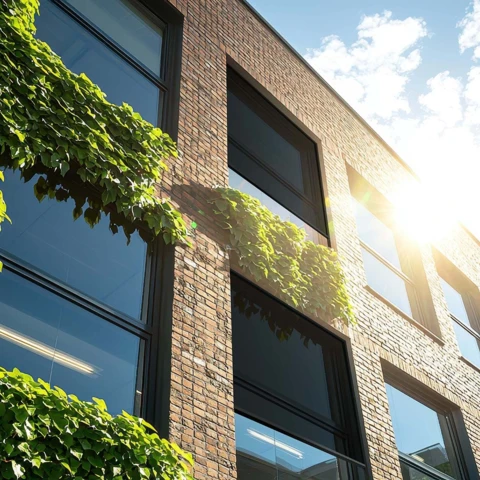Ecology




The use of sunshades helps to achieve higher energy efficiency in buildings, which is one of the key requirements of modern construction.
The implementation of solar shading systems enhances the energy efficiency of buildings, promotes eco-friendliness, and improves their adaptability to shifting climate conditions.
These systems enable natural temperature regulation within buildings, minimizing reliance on air conditioning and heating.
By lowering energy usage, they contribute to a decrease in carbon dioxide emissions, which is crucial in combating climate change and advancing toward carbon neutrality.
Natural light and optimum temperature have a positive effect on wellbeing and productivity, which is particularly important in offices and commercial spaces.
Solar shading effectively protects interiors from harmful UV radiation, which not only prolongs the life of furniture, floors and other furnishings, but also reduces the need for frequent replacement, thus reducing waste.
Protection of the natural environment
Sustainable development can be supported through the use of external shading devices such as screens, awnings or bioclimatic pergolas:
- They reduce the heat island effect in cities by lowering the temperature around buildings.
- They promote water conservation by protecting plants from excessive sunlight, which is important for terraces and gardens.
Solar shading systems are an amazing ecological solution that helps us save energy, reduce CO2 emissions and make our buildings more comfortable for people to live and work in.
